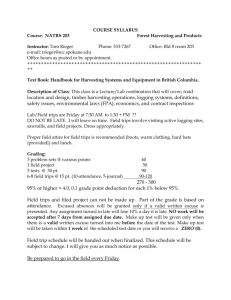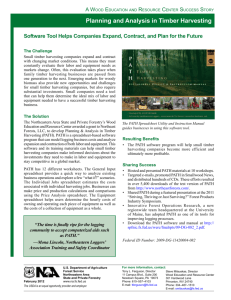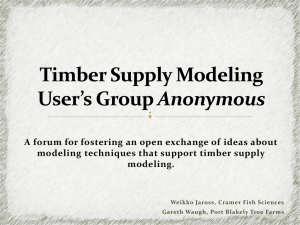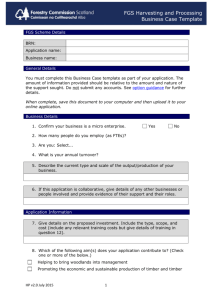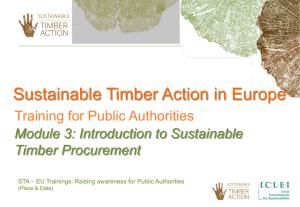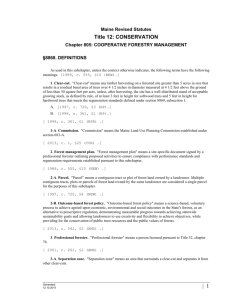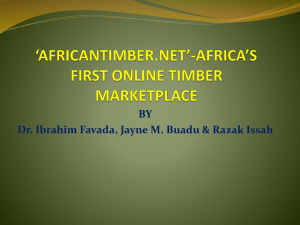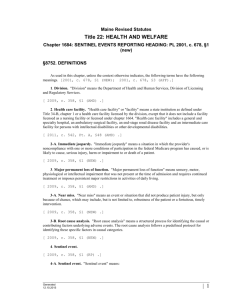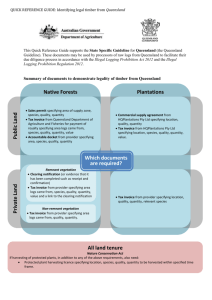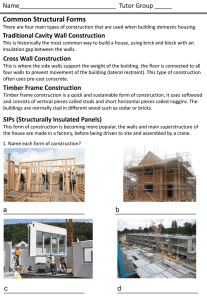2511 MS-Word - Maine Legislature
advertisement
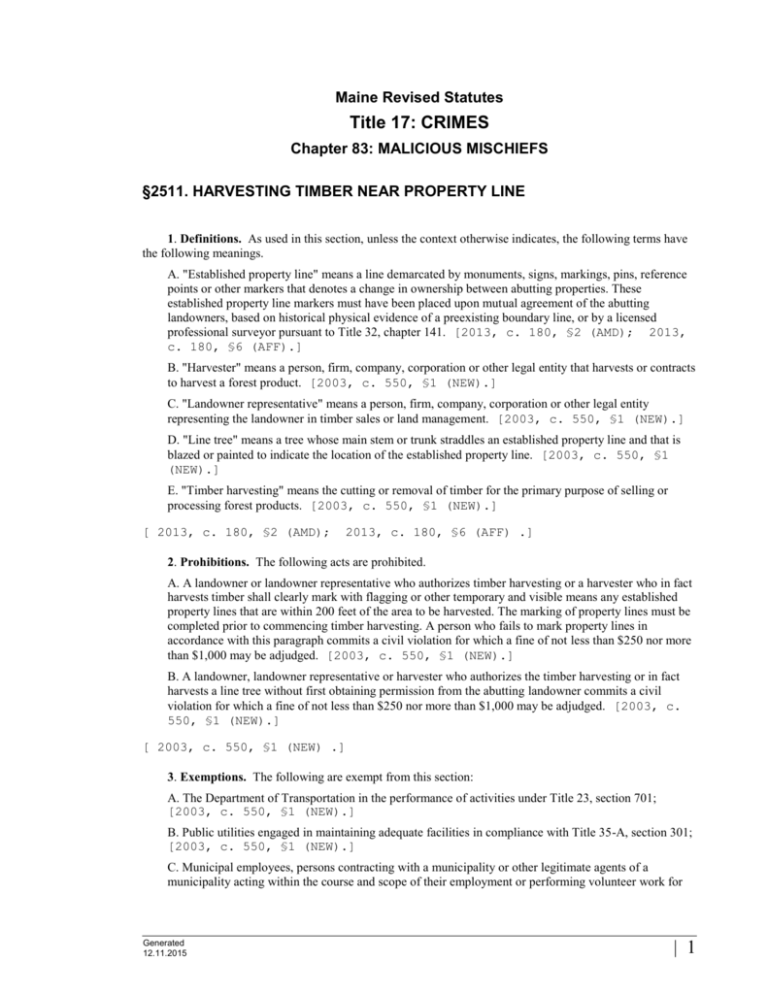
Maine Revised Statutes Title 17: CRIMES Chapter 83: MALICIOUS MISCHIEFS §2511. HARVESTING TIMBER NEAR PROPERTY LINE 1. Definitions. As used in this section, unless the context otherwise indicates, the following terms have the following meanings. A. "Established property line" means a line demarcated by monuments, signs, markings, pins, reference points or other markers that denotes a change in ownership between abutting properties. These established property line markers must have been placed upon mutual agreement of the abutting landowners, based on historical physical evidence of a preexisting boundary line, or by a licensed professional surveyor pursuant to Title 32, chapter 141. [2013, c. 180, §2 (AMD); 2013, c. 180, §6 (AFF).] B. "Harvester" means a person, firm, company, corporation or other legal entity that harvests or contracts to harvest a forest product. [2003, c. 550, §1 (NEW).] C. "Landowner representative" means a person, firm, company, corporation or other legal entity representing the landowner in timber sales or land management. [2003, c. 550, §1 (NEW).] D. "Line tree" means a tree whose main stem or trunk straddles an established property line and that is blazed or painted to indicate the location of the established property line. [2003, c. 550, §1 (NEW).] E. "Timber harvesting" means the cutting or removal of timber for the primary purpose of selling or processing forest products. [2003, c. 550, §1 (NEW).] [ 2013, c. 180, §2 (AMD); 2013, c. 180, §6 (AFF) .] 2. Prohibitions. The following acts are prohibited. A. A landowner or landowner representative who authorizes timber harvesting or a harvester who in fact harvests timber shall clearly mark with flagging or other temporary and visible means any established property lines that are within 200 feet of the area to be harvested. The marking of property lines must be completed prior to commencing timber harvesting. A person who fails to mark property lines in accordance with this paragraph commits a civil violation for which a fine of not less than $250 nor more than $1,000 may be adjudged. [2003, c. 550, §1 (NEW).] B. A landowner, landowner representative or harvester who authorizes the timber harvesting or in fact harvests a line tree without first obtaining permission from the abutting landowner commits a civil violation for which a fine of not less than $250 nor more than $1,000 may be adjudged. [2003, c. 550, §1 (NEW).] [ 2003, c. 550, §1 (NEW) .] 3. Exemptions. The following are exempt from this section: A. The Department of Transportation in the performance of activities under Title 23, section 701; [2003, c. 550, §1 (NEW).] B. Public utilities engaged in maintaining adequate facilities in compliance with Title 35-A, section 301; [2003, c. 550, §1 (NEW).] C. Municipal employees, persons contracting with a municipality or other legitimate agents of a municipality acting within the course and scope of their employment or performing volunteer work for Generated 12.11.2015 | 1 MRS Title 17 §2511. HARVESTING TIMBER NEAR PROPERTY LINE the municipality by removing trees obstructing a public way or fallen trees or in emergencies; and [2003, c. 550, §1 (NEW).] D. Timber harvesting performed on a parcel of land that is 5 acres or less. [2003, c. 550, §1 (NEW).] [ 2003, c. 550, §1 (NEW) .] SECTION HISTORY 2003, c. 550, §1 (NEW). 2013, c. 180, §2 (AMD). 2013, c. 180, §6 (AFF). The State of Maine claims a copyright in its codified statutes. If you intend to republish this material, we require that you include the following disclaimer in your publication: All copyrights and other rights to statutory text are reserved by the State of Maine. The text included in this publication reflects changes made through the First Regular Session of the 127th Maine Legislature and is current through October 15, 2015. The text is subject to change without notice. It is a version that has not been officially certified by the Secretary of State. Refer to the Maine Revised Statutes Annotated and supplements for certified text. The Office of the Revisor of Statutes also requests that you send us one copy of any statutory publication you may produce. Our goal is not to restrict publishing activity, but to keep track of who is publishing what, to identify any needless duplication and to preserve the State's copyright rights. PLEASE NOTE: The Revisor's Office cannot perform research for or provide legal advice or interpretation of Maine law to the public. If you need legal assistance, please contact a qualified attorney. | 2 Generated 12.11.2015
